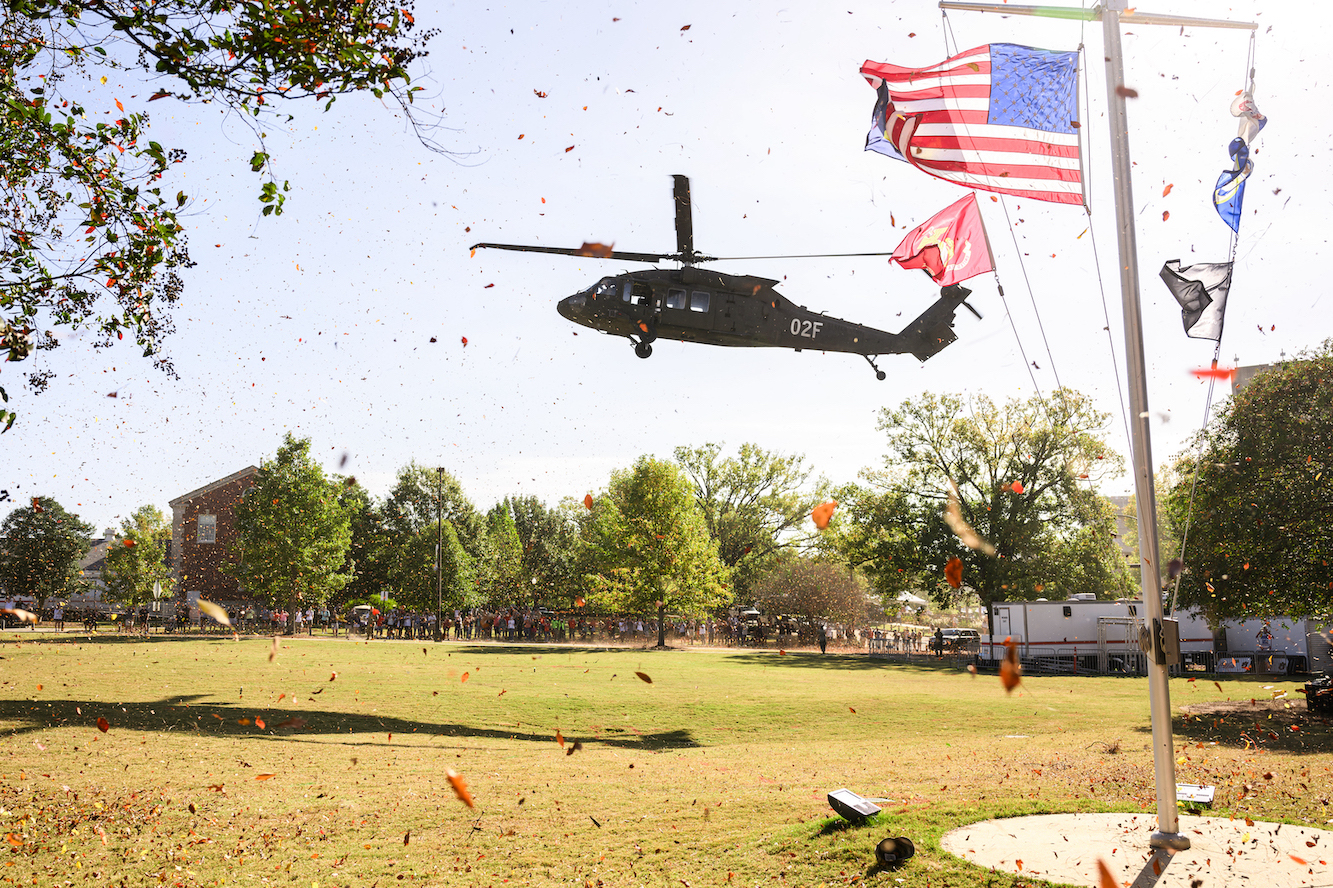
What do you picture when you think of a first-year college student? An 18-year-old fresh out of high school, navigating dorm life and discovering their passions?
For many, that’s the traditional image. But not all students fit that mold.
Some step onto campus as seasoned leaders who have tackled high-stakes environments, adapted to unpredictable challenges and served their country before pursuing a college degree.
Some come straight from active duty, while others have started families or built careers before beginning their academic journeys after service.
For many, pursuing college after the military is an exciting opportunity to open new doors and build a future beyond the uniform. However, transitioning from military service to the classroom also comes with challenges.
Balancing coursework with outside responsibilities can be demanding. Connecting with classmates who may not share the same life experiences can feel daunting. Recognizing these hurdles and finding the right support can make the difference in navigating this new chapter.
That’s where Auburn Engineering comes in.
Many veterans are drawn to fields where their military training provides a strong foundation to build upon. A growing number are choosing engineering, a discipline that values their hands-on skills sharpened through service, which translates seamlessly into careers that call for practical application.
For some Auburn student veterans, the transition to an engineering education was a natural next step in their journeys.
Noah Blondheim, a former F-35 crew chief in the Air Force, is earning a bachelor’s degree in mechanical engineering to broaden his technical expertise with the goal of working at a company that values giving back to the community.
Chase Childers, a former Navy electronics technician, discovered his passion for software while managing military communication systems.
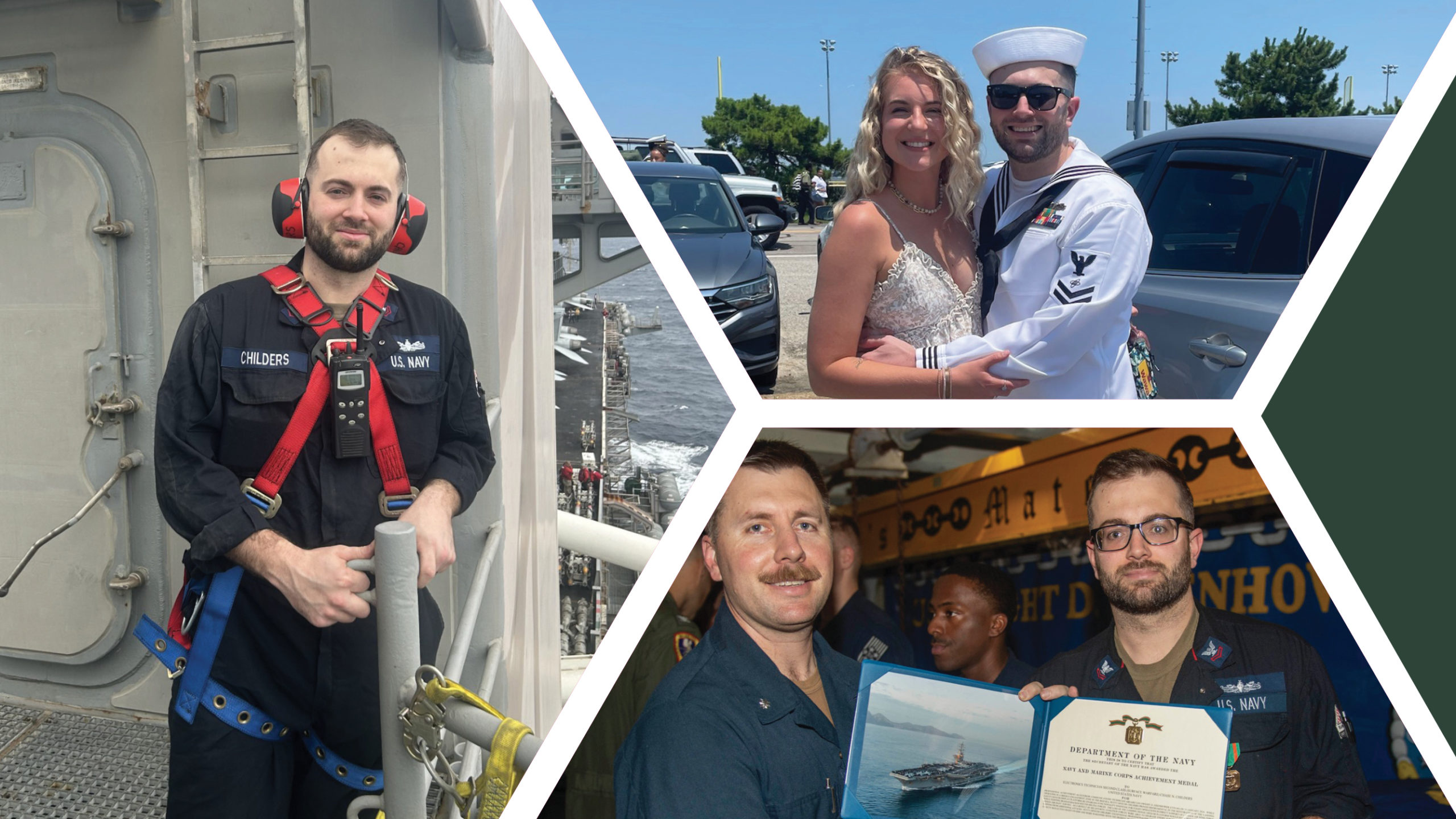
Intrigued by the complexities of software, he is studying software engineering and hopes to leverage his military experience and technical expertise to specialize in artificial intelligence solutions.
Chrystel Drummonds, a retired Army veteran with 20 years in the Judge Advocate General Corps, turned to engineering to challenge herself in a new way after service. Now pursuing a degree in biosystems engineering, she is applying her experiences to sustainable energy, water resources and agricultural technology, leveraging her discipline to develop engineering solutions that enhance efficiency.
Next mission: Auburn
Choosing the right university is just as important as selecting the right branch of service. And just as impactful.
So, why did they choose Auburn?
“This university was a good, certified engineering school that was close to home,” Blondheim said. “I’ve always loved machines, especially cars. Joining the military, I knew I wanted to work on the coolest machines. After a while, I found myself curious about the deeper secrets of how things fit together and worked.”
He knew Auburn Engineering could provide those answers.
Blondheim’s experience with mechanical systems offered a broader perspective in his courses, and his understanding of weight and balance for aircraft translated well into various engineering and physics studies.
“I am proving to myself that I can do it,” he said. “I’ve overcome challenges before, and I can do it again.”
Childers added, “I heard that the engineering program was top-notch and close to our family, which was a plus. Everyone is working toward the same goal — graduation — and people here are genuinely down-to-earth and willing to stop and help.”
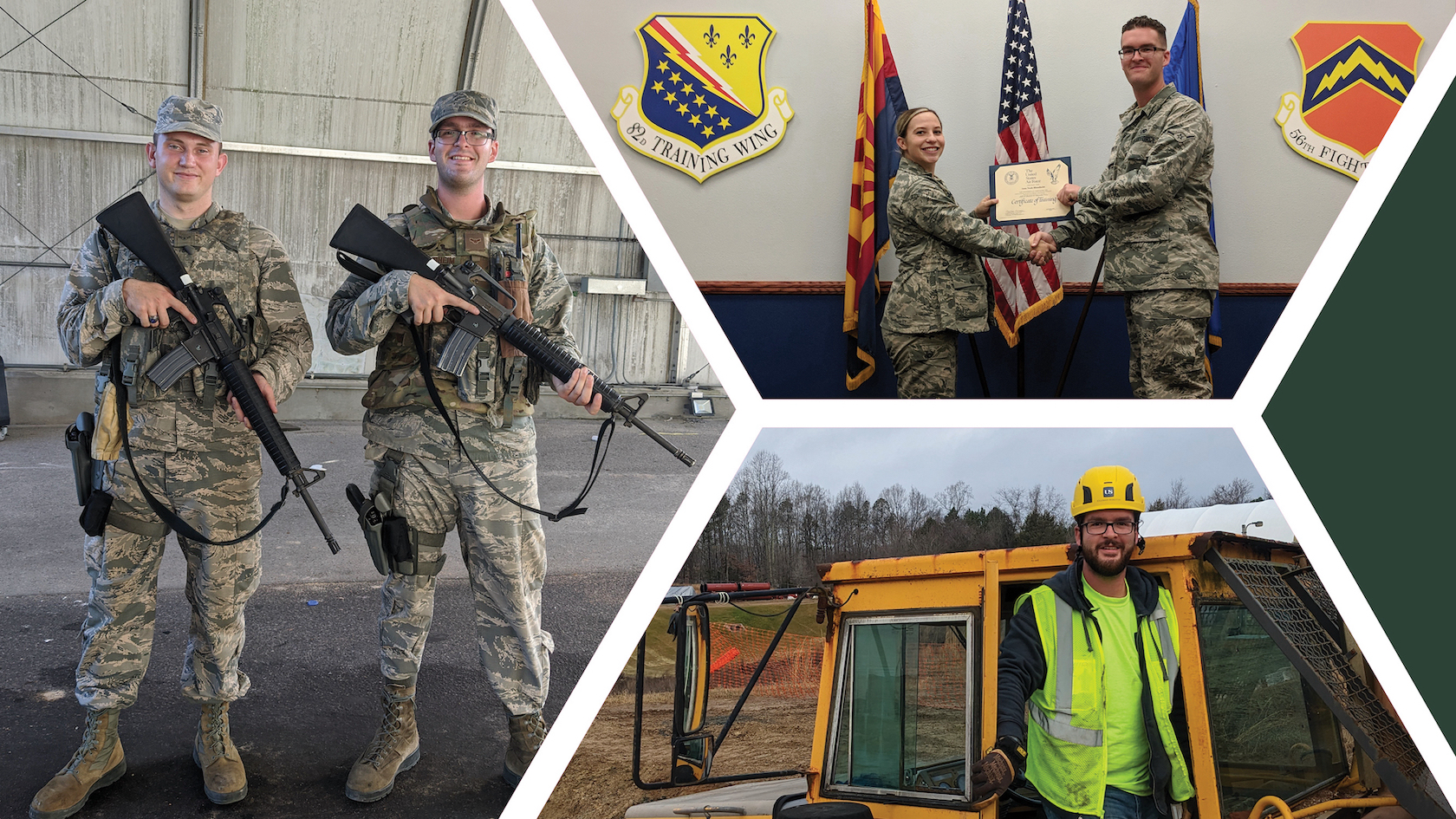
For Drummonds, the decision to attend Auburn wasn’t just about academics — it was about finding a place to put down roots with her daughter in mind. After retiring from the military and moving to Alabama, she wanted to settle in a location that offered a strong engineering program and a sense of stability.
“I picked a place, bought a house and Auburn had the right reputation,” she said. “It’s a great school and an even better community.”
The veteran advantage
Drawing from military backgrounds, student veterans bring a distinct perspective to the college experience. They may approach their education with a mission-oriented mindset, viewing their degree as a crucial objective and a way to prove to themselves they can take on the challenge.
Rick Williams, mechanical engineering senior lecturer and U.S. Navy veteran, can attest to that, noting that their disciplined approach and determination often set them apart in the classroom.
“Since veterans have been out in the real world, they are already used to working full time and often treat school as a full-time job,” he said. “They are not afraid to ask for help when they need it. They are good role models for their younger or more traditional classmates because their military training has imparted most of the necessary skill sets for success in becoming an engineer.”
Williams said student veterans frequently draw on their prior experiences in his courses, providing insights that enrich discussions and help classmates better understand the material. He’s found their knack for providing different perspectives on complex ideas makes them an asset in the classroom.
Shaped by service
Jackson Kerby, a ‘21 mechanical engineering alumnus and U.S. Air Force veteran, knows firsthand how military experience shapes an engineer’s mindset in the classroom and beyond.
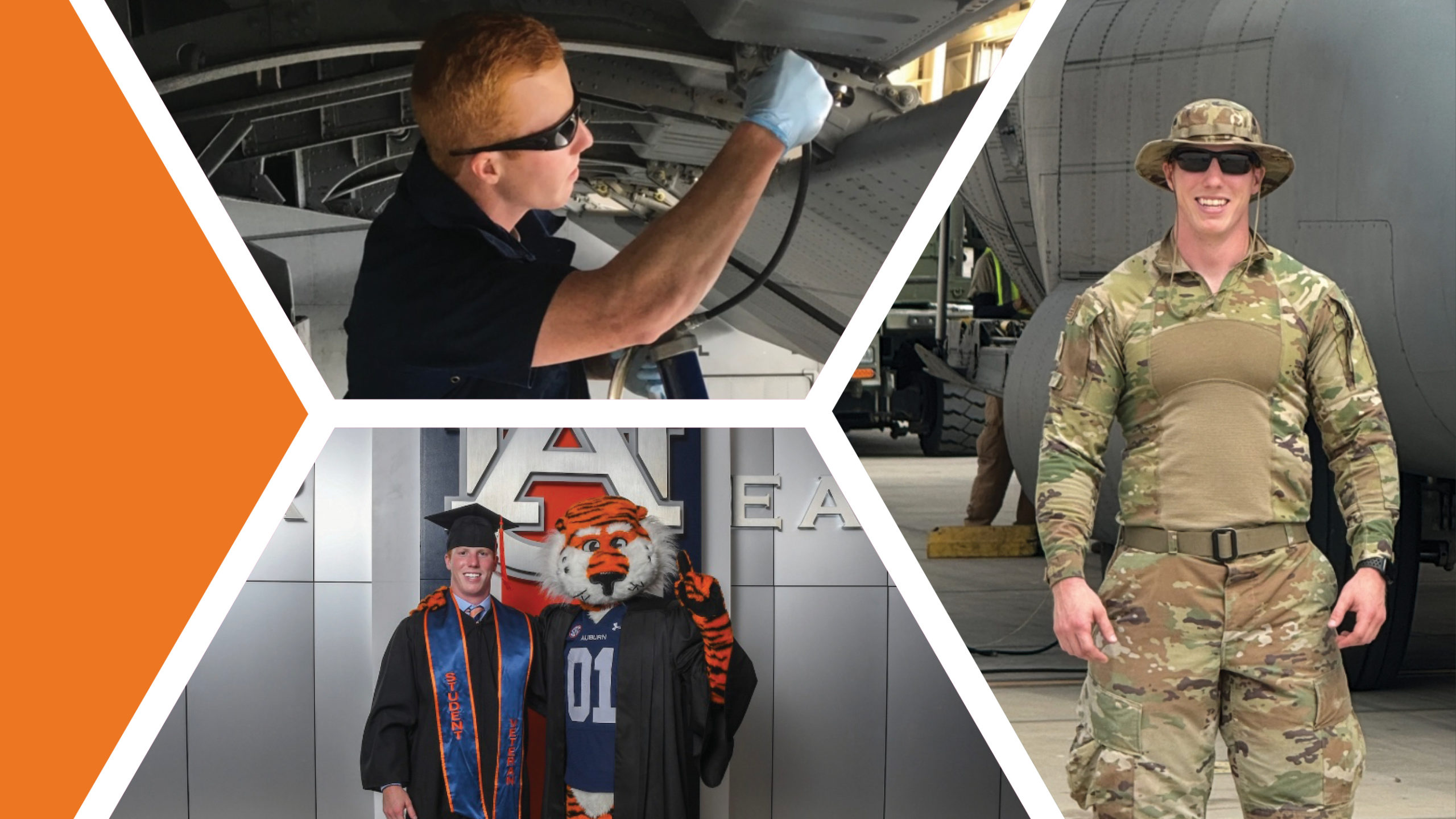
His time as an aircraft maintainer fueled his passion for mechanics and gave him a perspective that brought engineering concepts to life in his studies.
“I had a wealth of experiences to draw from,” Kerby said. “Working on aircraft and mechanical systems gave me an edge on the material I was studying. I could relate the theoretical concepts to practical applications, which made it easier for me to understand and retain the information.
“My service and engineering degree have been a true winning combination in helping me achieve my long-term professional ambitions.”
Kerby’s experiences in school helped develop him into a more capable and confident engineer. Auburn’s faculty recognized his non-traditional path and were eager to support him, providing guidance and encouragement to ensure his success.
Now a flight test discipline engineer at Lockheed Martin, Kerby applies the skills he developed during his service and with Auburn Engineering.
“Choosing Auburn was an easy decision,” he said. “Auburn’s reputation for academic excellence and strong support for veterans was a major draw for me.”
Stronger together
Student veterans’ abilities to apply their experiences in the classroom are certainly a strength, but adapting to the structure of an academic environment takes a noteworthy adjustment.
Blondheim points out that student veterans enter their programs and find environments with fewer fixed routines than they might be accustomed.
Success often hinges on acclimating to different expectations, managing flexible schedules and juggling academic responsibilities with other commitments.
Drummonds echoed this sentiment, emphasizing the challenge of adjusting to a more independent academic environment.
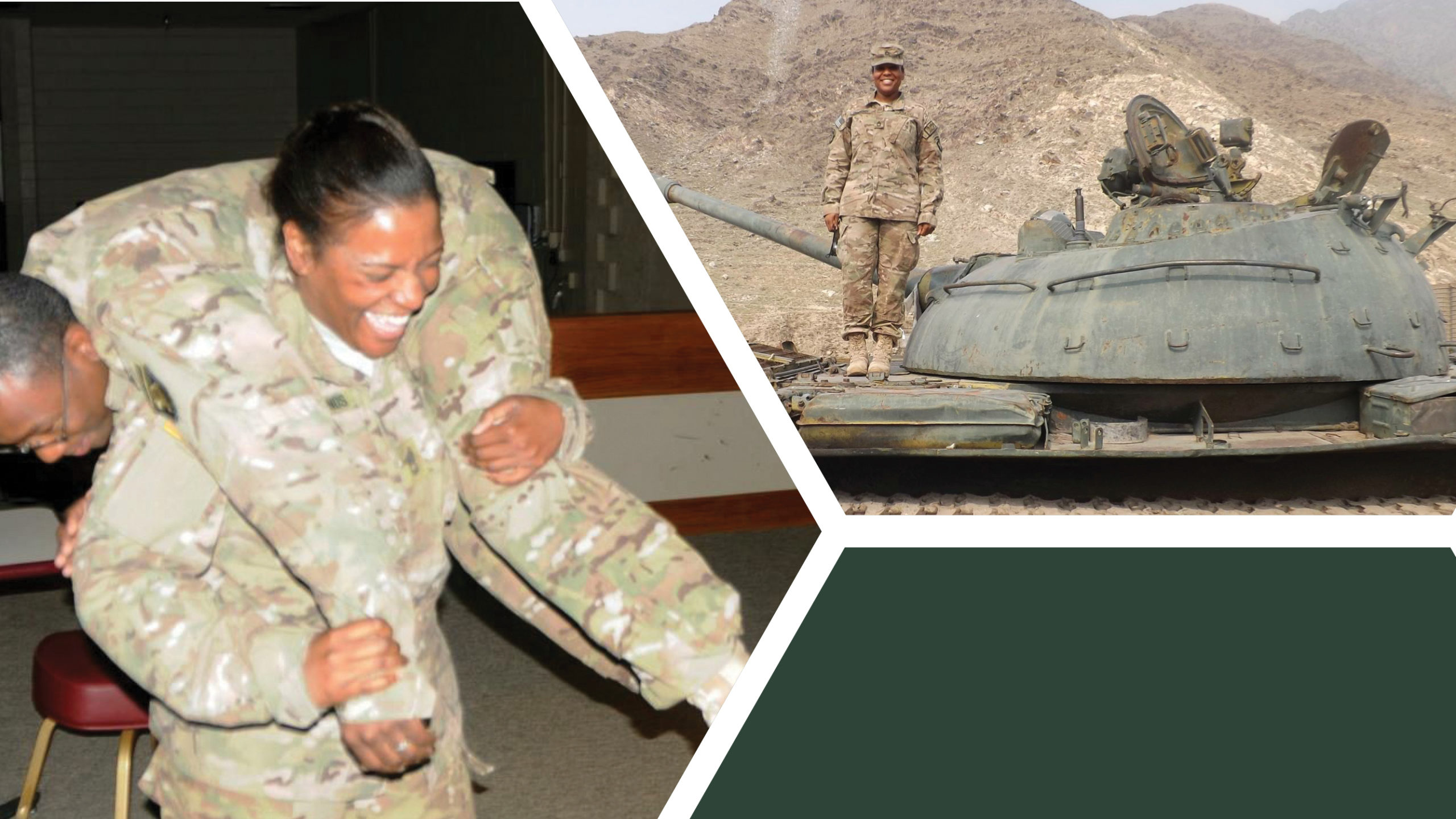
“It’s completely different from what I was used to,” she said. “In the military, I had a clear chain of command, structured days and defined responsibilities.”
Adjusting from that precise environment to one where self-discipline and time management are entirely self-directed can feel overwhelming.
Having a supportive community that relates to that struggle can make all the difference.
Auburn University’s Veterans Resource Center (VRC) is dedicated to making that transition as smooth as possible. The VRC stands as a vital support system, helping student veterans navigate their new chapters.
“The VRC means everything. Most of us are used to a strong team, and it helps to be there around people with shared experiences. They’re my people,” Drummonds said.
Nestled within Foy Hall, the VRC might look like an ordinary office at first glance. However, step inside, and you’ll discover a vibrant community. It’s a welcoming space for veterans, thoughtfully designed with their needs in mind. For many, it becomes a home away from home, connecting them with peers and staff who understand and help them navigate the road to graduation and beyond.
“It’s an amazing space to be around like-minded individuals as we navigate college at an older age. I love swapping stories there,” Childers said.
Engineering student veterans have access to subject-specific tutoring, technology assistance through the Rucksack to Backpack program, free printing services, locker space and mentorship opportunities through the Veterans Success Program.
“The VRC’s location on campus was a major plus,” Kerby said. “Situated near the engineering side of campus, it was conveniently located for me to stop by and study, get organized or simply take a break between classes.”
Blondheim said having a dedicated space means a lot.
“It means having a space I feel invested in because it was made for people like me,” he said.
Built for veterans
Alongside this support, Auburn has tailored scholarships for veterans enrolled in various engineering programs to ease financial burdens.
Scholarships such as the SFC Jacob E. Schlereth Memorial Scholarship, the Brig. Gen. Robert L. and Barbara Davis Scholarship and the Maj. Gen. James E. Livingston, MOH and Mrs. Sara Craft Livingston Scholarship are among the dozens of opportunities available to support veterans pursuing an Auburn Engineering degree.
Auburn Engineering also helps student veterans find guidance from those who have walked a similar academic path.
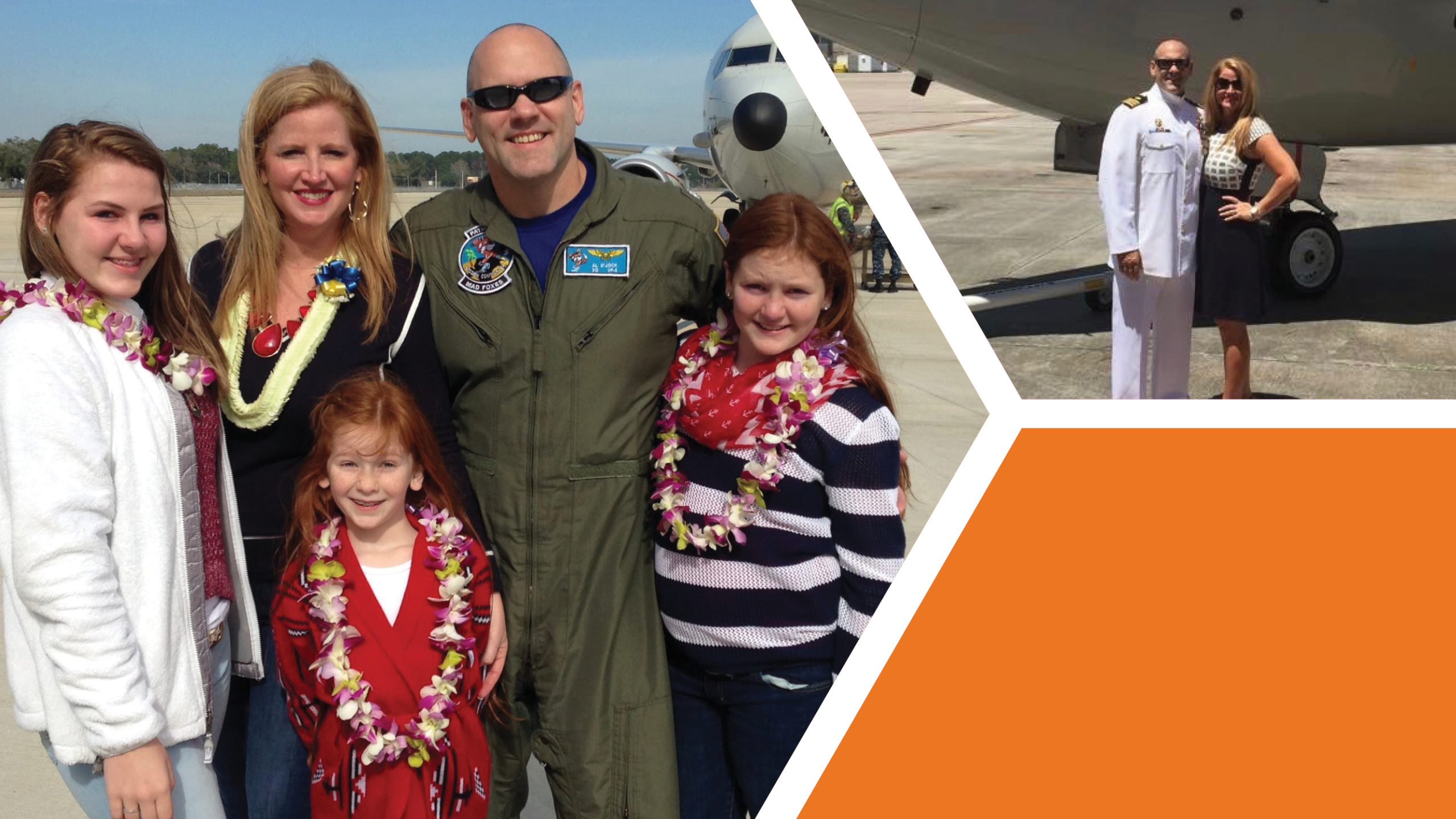
Academic advisor Al D’Jock, a U.S. Navy veteran with 22 years of service spanning roles from piloting the P-3 Orion and P-8 Poseidon on anti-submarine missions to serving at the Pentagon, now supports students by offering reassurance through shared experiences.
“Whether they’re veterans or traditional students, I want them to know they have someone in their corner,” D’Jock said.
D’Jock enjoys encouraging student veterans any chance he can get. Drawing from his own military experience, he helps them navigate the challenges of higher education, providing encouragement and practical advice.
“I always tell them to lean on the discipline and perseverance they built in the military. It’s going to be hard, but they’ve already done hard things,” he said.
“Auburn is a great place for veterans. The resources, the supportive students, the engineering program — it all makes for a strong environment made to help them succeed,” he added.
That support isn’t limited to campus.
Recognizing that many veterans balance work, family and education, Auburn Engineering’s online graduate programs offer a flexible curriculum without sacrificing quality.
Ranked No. 15 for online programs for veterans by the U.S. News & World Report’s 2025 Best Online Graduate Engineering Programs, Auburn Engineering’s online options provide veterans access to a top-tier education that can advance their careers from anywhere.
“To any veterans considering engineering — do it. Don’t quit. Use the discipline and patience the military taught you,” Drummonds said. “If you could handle the military, you can handle this.”